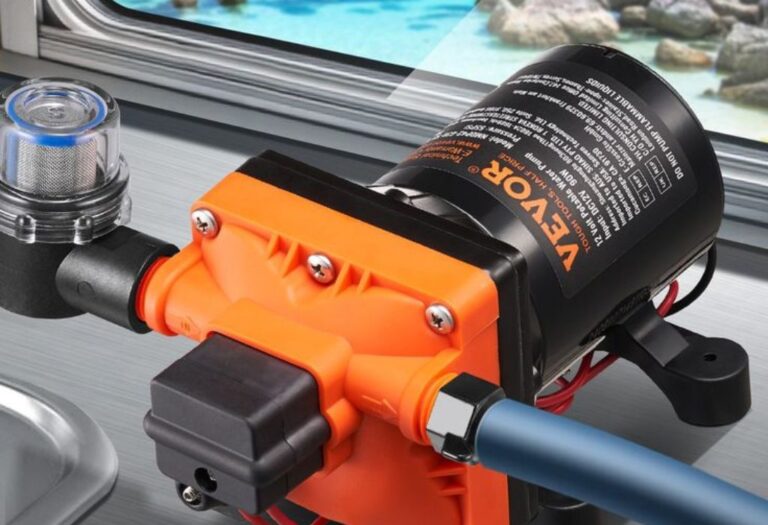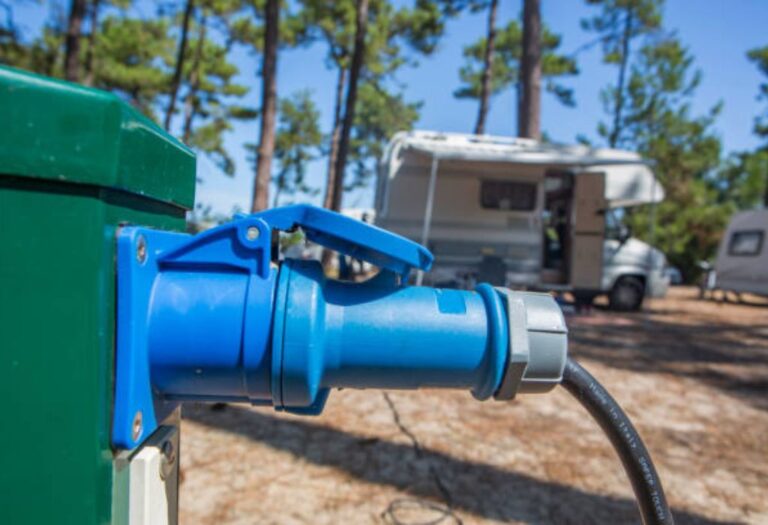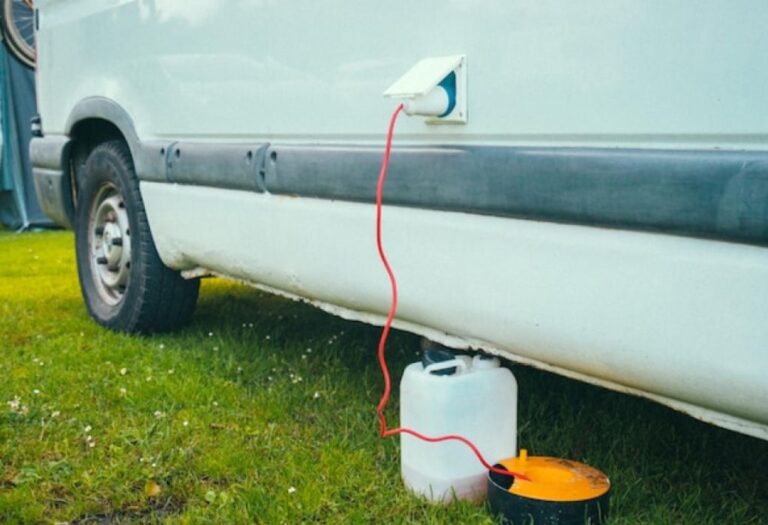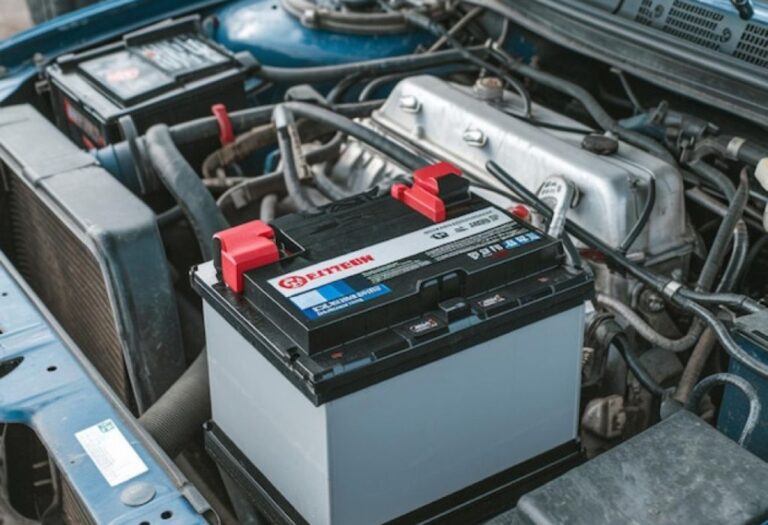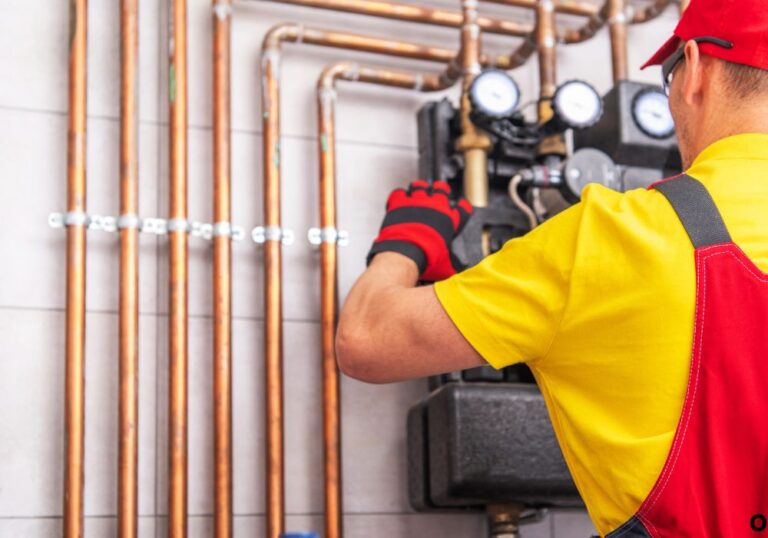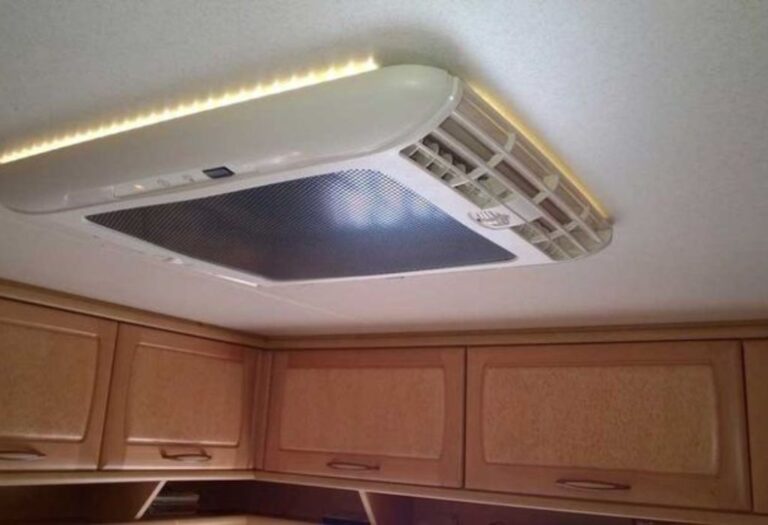Can I Run My RV Furnace Without a Battery Safely?
RV furnaces are essential for comfortable camping in cold weather. They provide reliable heat during chilly nights, keeping your family safe and warm.
Many new RV owners are surprised to learn that propane alone does not make the furnace run. A 12-volt electrical system is equally important for proper operation.
This leads to a common question: can you run your RV furnace without a battery? The answer depends on whether you are connected to shore power and how your RV is wired.
Some RVs can operate their furnace from the converter when plugged into shore power. Others require a battery connected at all times to stabilize voltage.
Relying only on shore power introduces risks, especially if campground electricity is unstable. A sudden outage could leave you without heat in the middle of the night.
Understanding how your RV furnace works is the first step to avoiding cold and unsafe situations. Let’s break down how these systems operate and why a battery is often essential.
How an RV Furnace Works
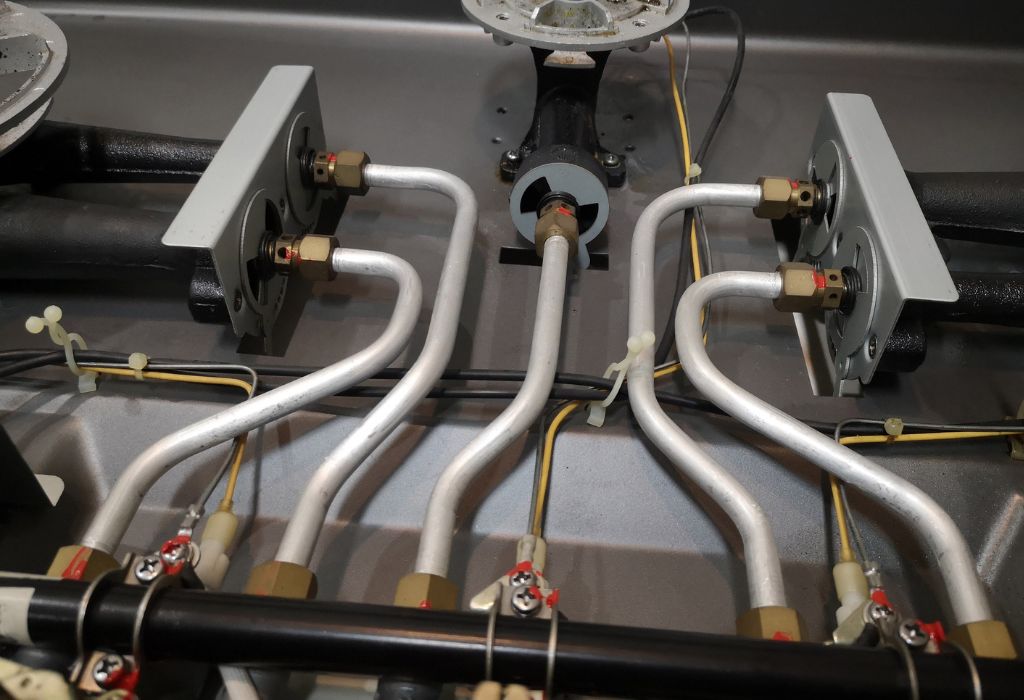
An RV furnace is a propane-powered heating unit controlled by a 12V electrical system. While propane provides the flame, electricity powers all supporting functions.
The blower fan requires 12V DC to circulate warm air throughout the RV. Without the fan, the furnace cannot distribute heat effectively.
A control board manages ignition, flame monitoring, and safety shutoffs. It depends entirely on 12-volt power supplied by the RV battery or converter.
The thermostat signals the furnace to turn on or off. It also runs on the 12-volt system and cannot function without electricity.
The igniter uses electricity to spark the propane flame. Without 12V current, propane cannot ignite safely inside the combustion chamber.
This balance between propane fuel and electrical power is critical. Without electricity, the furnace cannot operate even if you have a full propane tank.
Does an RV furnace run only on propane?
No, it also needs 12V electricity to function.
What does the battery power?
It powers the igniter, blower fan, thermostat, and control board.
Will the furnace ignite without 12V?
No, the igniter cannot create a spark without power.
Is propane enough by itself?
No, propane provides heat but electricity makes the furnace work.
Can You Run an RV Furnace Without a Battery?
In theory, an RV furnace can run without a battery if you are plugged into shore power. The converter turns 120V AC into 12V DC, which powers the furnace.
However, not all RV converters deliver stable current without a battery attached. Some depend on the battery to smooth out electrical fluctuations.
If your RV furnace is wired to require a battery inline, removing it may prevent operation. Even with shore power, the furnace could fail to start.
Certain older or budget RVs have weak converters that cannot support furnace loads alone. These systems often rely on the battery as a buffer.
Even if the furnace runs, shore power without a battery is less reliable. Voltage drops or surges may damage the furnace control board.
For this reason, most RV experts recommend always keeping a battery connected. It ensures safe, consistent operation in all conditions.
Can I run it plugged into shore power only?
Yes, but only if your converter delivers steady 12V current.
What happens if I remove the battery?
The furnace may not start or may shut down under load.
Is a battery always required?
Not always, but it is strongly recommended for reliability.
Can solar replace the battery?
No, solar panels charge batteries but cannot power the furnace directly.
Running Furnace on Shore Power Without Battery
When your RV is connected to shore power, the converter provides 12V electricity. This allows the furnace to function even if the battery is removed.
Converters vary in quality, and cheaper units may not deliver steady voltage. The furnace may click, short-cycle, or fail without a stabilizing battery.
Shore power outages create another risk. If the power goes out, the furnace stops immediately without battery backup.
Many campgrounds experience occasional power fluctuations. A battery prevents these drops from affecting your heating system.
Running only on shore power may seem convenient. In practice, it is unreliable for long-term use.
Keeping a charged battery connected ensures the furnace has stable power. It also protects your electronics from damage caused by unstable voltage.
Will furnace work on shore power alone?
Yes, but only if the converter provides stable voltage.
Can I damage furnace by running without battery?
Yes, surges and drops may harm sensitive components.
Does shore power charge the battery?
Yes, most RV converters recharge batteries when plugged in.
Should I disconnect the battery when plugged in?
No, it should stay connected as a buffer.
Risks of Running Furnace Without a Battery
The biggest risk is losing heat during a power outage. Without a battery, the furnace shuts down instantly when shore power is lost.
Unstable campground electricity can damage the furnace’s electronics. The battery normally stabilizes these fluctuations.
The converter may strain under startup loads. The blower motor and igniter require a strong initial current that a battery usually provides.
Removing the battery also eliminates emergency backup. If you dry camp or boondock, the furnace will not run at all.
Power surges or low-voltage conditions may shorten furnace lifespan. The control board is especially vulnerable to irregular power.
For safety and reliability, most technicians advise keeping a battery installed. The risks of going without outweigh the small convenience gained.
What if shore power cuts out?
The furnace stops immediately with no backup.
Can power surges affect furnace?
Yes, unstable voltage can damage the control board.
Why do RV experts recommend keeping a battery?
It stabilizes voltage and ensures backup power.
Is it unsafe to remove the battery?
Not unsafe, but it increases the chance of furnace failure.
Battery’s Role in RV Furnace Systems
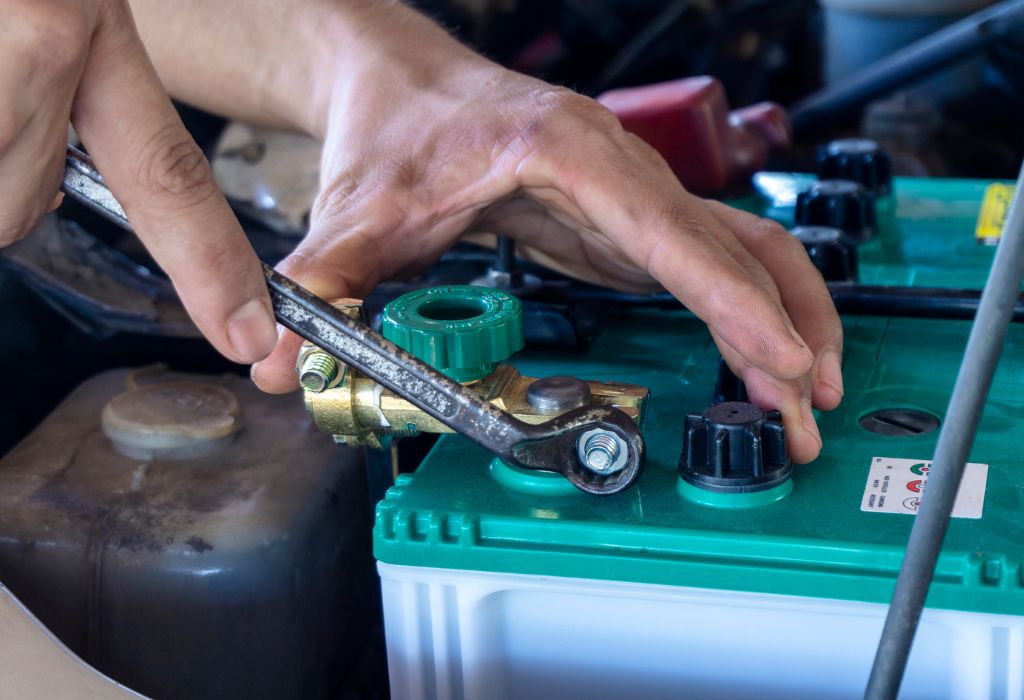
The RV battery is more than just a power source for off-grid camping. It is a vital part of the furnace’s electrical system.
It supplies 12V current to the blower, thermostat, and ignition. Without it, these parts cannot function properly.
It stabilizes voltage supplied by the converter. This prevents fluctuations from damaging sensitive components.
It acts as backup during short power outages. Your furnace continues running even when shore power fails.
Lead-acid batteries are common in RVs, but they degrade over time. Lithium batteries offer longer life and more consistent performance.
A well-maintained battery ensures your furnace always starts. It is a key part of reliable heating in any RV.
Why does furnace need 12V?
To power the fan, igniter, and control systems.
Does battery improve reliability?
Yes, it smooths power and prevents sudden failures.
Can I use a small battery?
Yes, but it will not last as long in off-grid use.
Will lithium batteries work better?
Yes, they deliver stable voltage and longer life.
Alternatives to Running Furnace Without Battery
A generator can power your converter and keep the furnace running. However, it must stay on the entire time.
Portable propane heaters are another option. They must be vented properly and used cautiously to avoid carbon monoxide.
Upgraded converters can sometimes provide steady voltage without a battery. But most RVers still keep a battery connected.
Solar panels are useful but only work through charging a battery. They cannot run the furnace directly.
Some campers use a combination of solar, generator, and battery. This ensures maximum reliability in different conditions.
The simplest solution remains keeping a good battery installed. Alternatives may help, but none replace the stability of a battery.
Can I use propane heater instead of furnace?
Yes, but it must be vented and RV-safe.
Will a generator run the furnace?
Yes, by powering the converter with 12V output.
Is solar power an option?
Yes, but only as a charging method for batteries.
Can I upgrade to avoid batteries?
Yes, but batteries are still safer and more reliable.
Troubleshooting Furnace Power Problems
If your furnace does not start, check the 12V supply first. A dead battery or bad converter often causes startup issues.
A weak or noisy blower fan signals low voltage. This problem often appears when batteries are old or drained.
If the furnace clicks but does not ignite, unstable voltage may be the reason. The igniter requires steady power to spark.
Short cycling, where the furnace starts and shuts down quickly, often results from voltage drops. This can be fixed by maintaining a strong battery.
Furnaces that shut off suddenly may be protecting themselves. Safety circuits engage when voltage falls too low.
Electrical issues are the most common cause of furnace failure. Keeping batteries healthy prevents many of these problems.
Why does furnace fan run but no heat?
The igniter may not have enough voltage.
Why does furnace shut off suddenly?
Low voltage triggers safety shutdowns.
Why is furnace noisy on shore power?
Unstable power causes the blower to strain.
Why won’t furnace start at all?
The battery may be disconnected or dead.
Long-Term RV Heating Tips
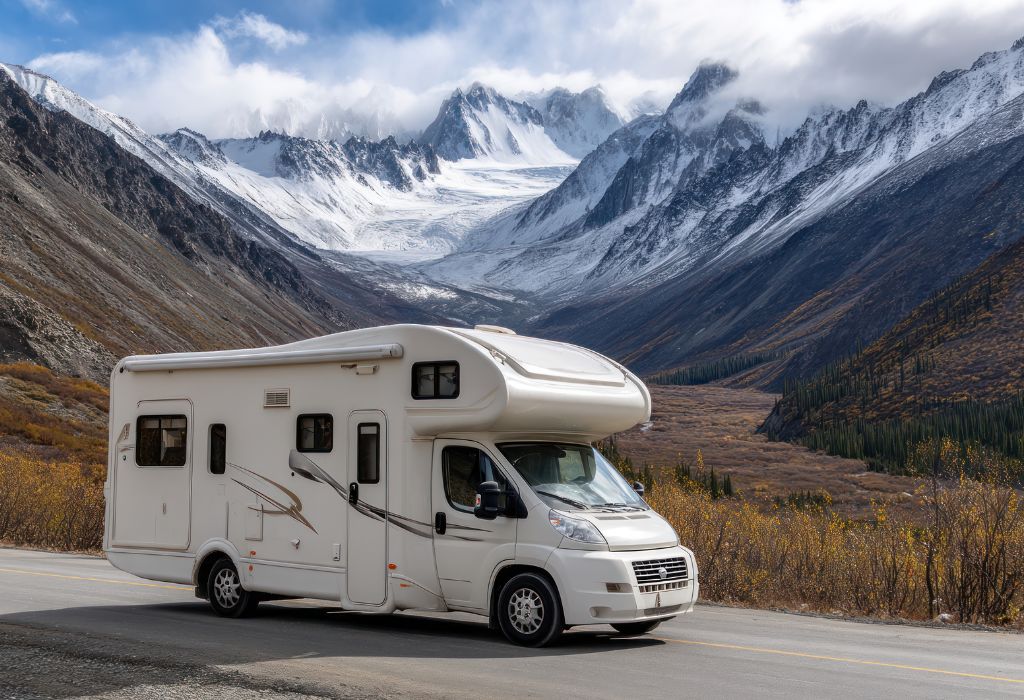
Always keep your battery charged, even when on shore power. This ensures reliable operation during outages.
Use a battery monitor to track performance. It helps prevent over-discharge and extends battery life.
Run the furnace monthly, even in warm weather. Regular use prevents dust buildup and ignition issues.
Perform seasonal maintenance on your furnace. Clean vents, check wiring, and inspect the blower for damage.
Upgrade to lithium batteries if you camp frequently. They last longer and perform better in cold conditions.
Plan for backup heat sources in extreme weather. A generator or safe propane heater can prevent emergencies.
Should I always leave battery connected?
Yes, it stabilizes voltage and protects electronics.
Do lithium batteries last longer?
Yes, they provide more cycles and steady output.
Should I run furnace monthly?
Yes, it keeps the system in good condition.
Can maintenance extend furnace life?
Yes, cleaning and checks improve reliability.
Conclusion
An RV furnace cannot run on propane alone. It needs 12V electricity to ignite and distribute heat.
Shore power can sometimes replace the battery if the converter is strong. But many RVs require the battery as a stabilizer.
Running without a battery is risky in campgrounds with unstable electricity. A single outage could leave you without heat.
The battery provides both stability and backup power. Removing it shortens furnace life and increases the chance of failure.
For anyone asking, “can I run my RV furnace without a battery,” the safest answer is no. Always keep a healthy, charged battery connected to your RV system.
I’m David R. Coleman, the founder, lead writer, and lifelong tool enthusiast behind GarageToolPro.com. With years of experience in automotive repair, woodworking, and home DIY projects, I created this platform to share practical tips, detailed tool reviews, and step-by-step guides that help mechanics, hobbyists, and homeowners get the job done right the first time.

